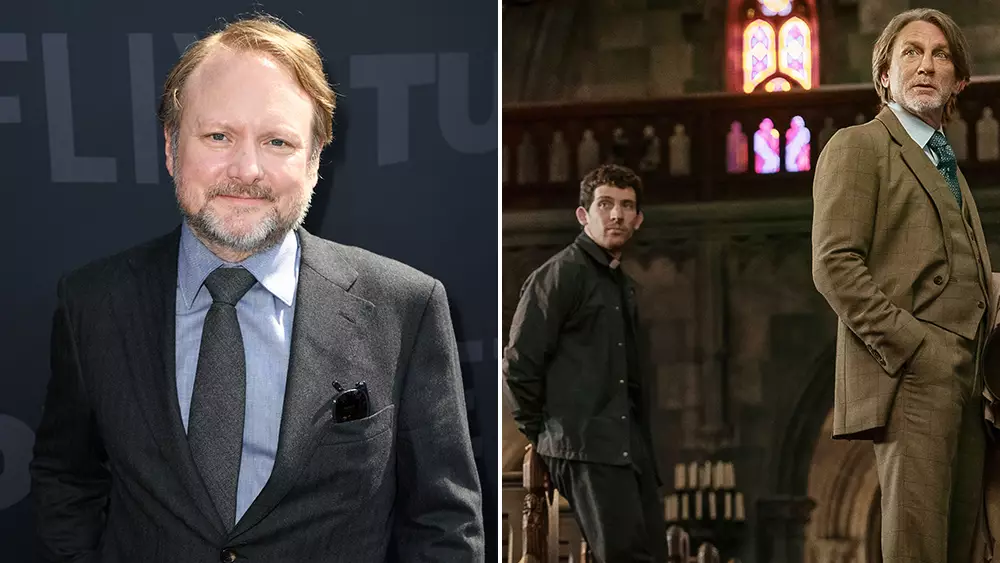In an era saturated with sequels and franchise fatigue, Rian Johnson’s upcoming *Wake Up Dead Man: A Knives Out Mystery* signals a daring departure from the established tone of his previous entries. The filmmaker’s revelation that this new installment will embrace a more Gothic, darker aesthetic is not just an aesthetic preference but a reclamation of the storytelling roots that predate modern detective fiction. Unlike the whimsical, campy atmosphere of *Glass Onion*, this film aims to evoke a visceral connection to the atmospheric grandeur of Edgar Allan Poe, emphasizing mood, atmosphere, and psychological depth. This choice underscores Johnson’s awareness of genre evolution and his conscious effort to challenge both his artistic boundaries and audience expectations.
Johnson’s emphasis on returning to Gothic traditions demonstrates an understanding that horror and mystery have always been intertwined. Gothic stories evoke complex emotions—fear, dread, intrigue—making them powerful tools for storytelling that taps into primal human experiences. By grounding *Wake Up Dead Man* in this tradition, Johnson distinguishes it from the more lighthearted, puzzle-oriented style of its predecessor. This move presents an opportunity to explore Benoit Blanc, Daniel Craig’s shrewd detective, in a environment that amplifies his analytical prowess amid oppressive atmospheres, heightening tension and psychological stakes.
Breaking Free from the Repetition Trap
One of Johnson’s most compelling statements is his aversion to repetition. He candidly admits that repetition leads to stagnation—a creative dead-end that dilutes the freshness of each project. By intentionally shifting tones, he embodies the artist who refuses to coast on familiarity. His process becomes a quest for novelty, a pursuit to keep his work engaging for himself and his audience. This obsession with innovation challenges the notion that sequels must maintain the same style, instead positioning each installment as a standalone artistic experiment that enriches the franchise’s overall legacy.
This philosophy is crucial in the context of modern Hollywood’s formula-driven approach. Johnson’s willingness to diverge from the expected reflects an acute awareness that audiences crave authentic surprises and fresh perspectives. The Gothic tone not only serves as a stylistic change but also invigorates the narrative possibilities — darker themes, atmospheric tension, and psychological complexity — ultimately elevating the genre’s storytelling potential.
The Future of the series and Artistic Integrity
Despite the uncertainty surrounding future installments, Johnson’s commitment to experimentation indicates that the *Knives Out* universe will remain dynamic and evolution-driven. His refusal to plan rigid sequels reveals a prioritization of artistic integrity over commercial continuity. For Johnson, each film is a venture into uncharted storytelling territory—a metaphorical ship launched into unpredictable seas, where the destination isn’t preordained.
This approach positions *Knives Out* as a franchise that values creative risk and genuine exploration over formulaic adherence. Johnson’s openness about not having a concrete concept for subsequent films reflects a healthy reliance on inspiration rather than obligation. He seems committed to maintaining the integrity of his artistic voice, recognizing that this is what keeps the franchise compelling and vital.
—
Critically, Johnson’s shift towards a Gothic tone could be viewed as a risk that might alienate audiences expecting the familiar wit and charm of the series. However, it also exemplifies a confident artist unafraid to challenge conventions and redefine his craft. By embracing the darker, atmospheric roots of detective fiction, he is positioning *Wake Up Dead Man* not merely as a sequel, but as a bold statement on storytelling’s capacity to evolve while honoring its origins.
Ultimately, Johnson’s willingness to venture into the shadowed corridors of Gothic horror signifies a deeper understanding that true innovation in genre filmmaking demands risk-taking. His refusal to remain static, paired with his reverence for storytelling traditions that predate even Christie’s detective tales, makes this upcoming film an intriguing experiment—one that could very well reshape the landscape of modern mystery cinema. As audiences await its release, the question isn’t just whether the film will succeed but whether it will inspire a new wave of genre-bending storytelling that refuses to settle for superficiality.

